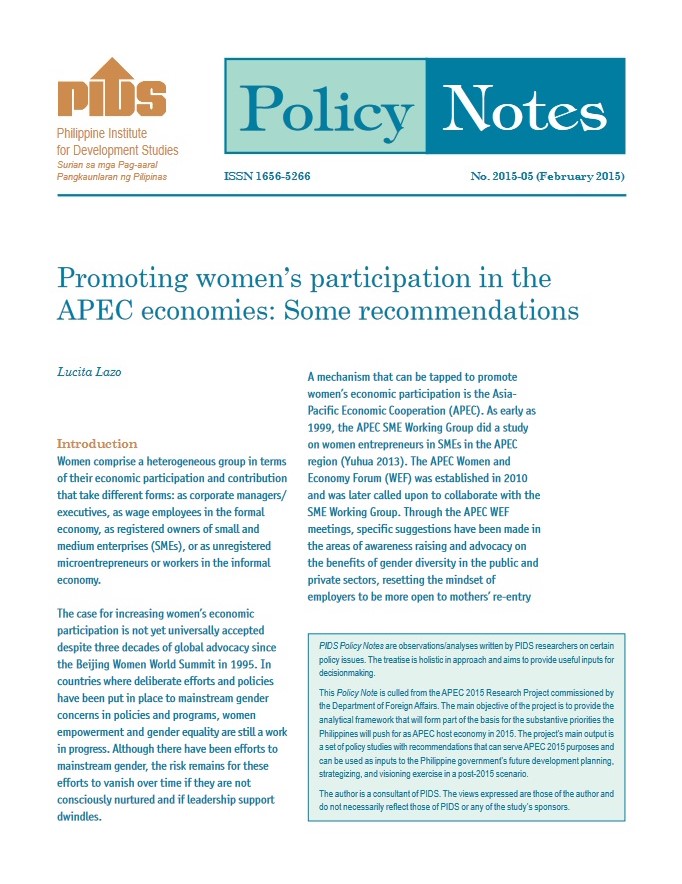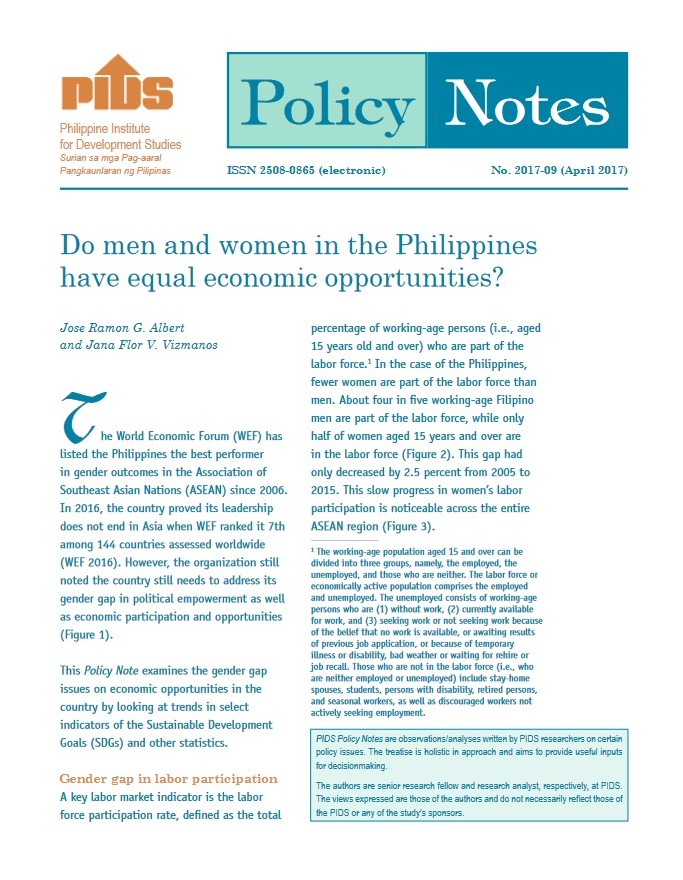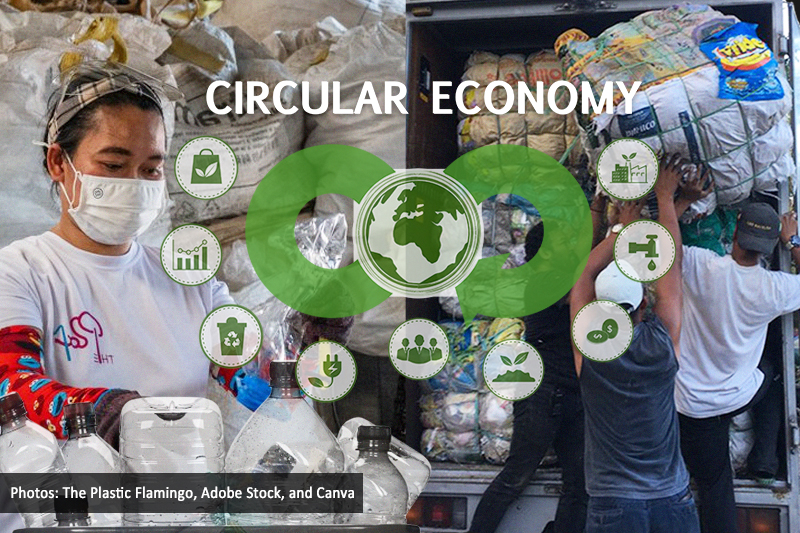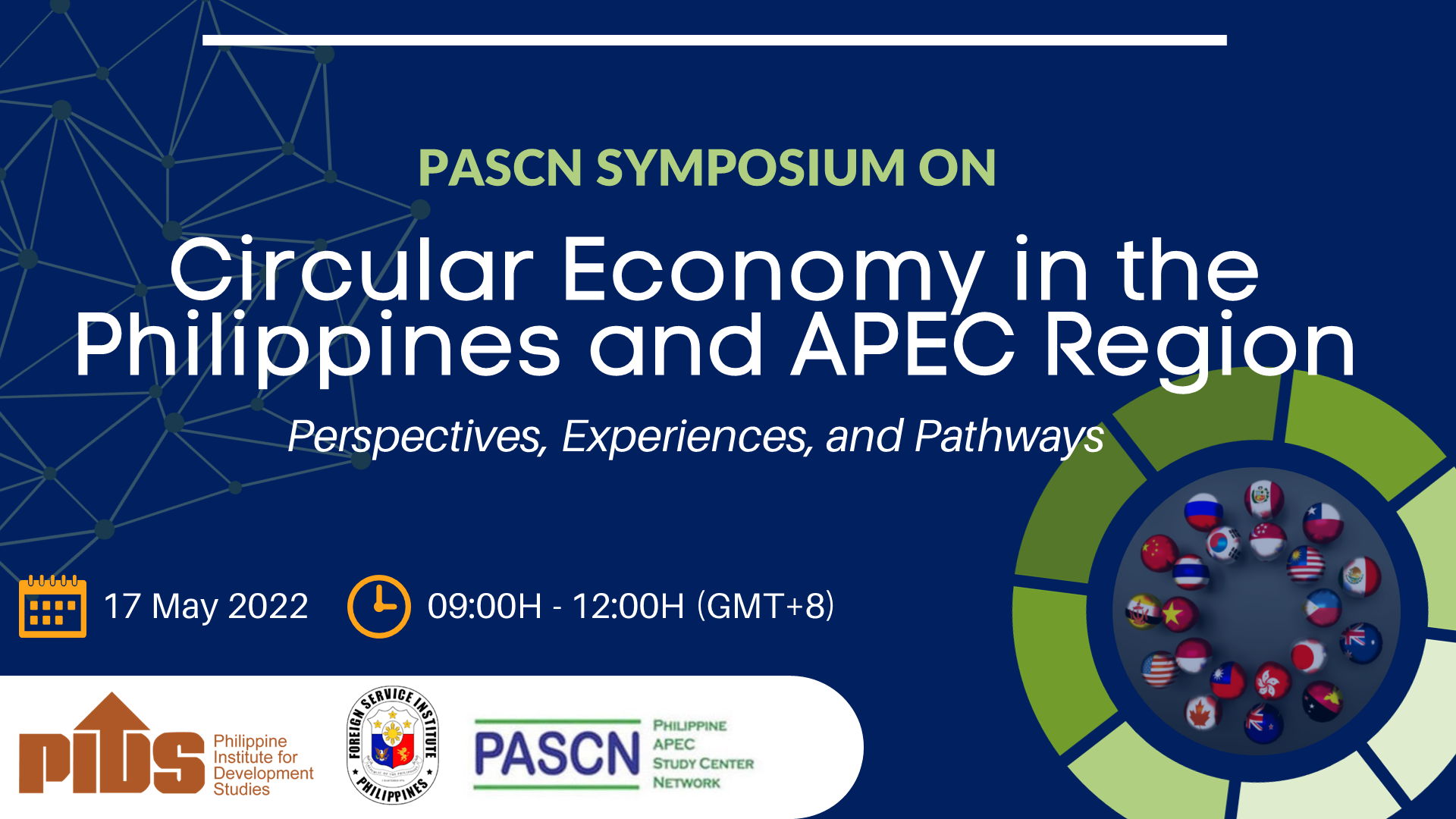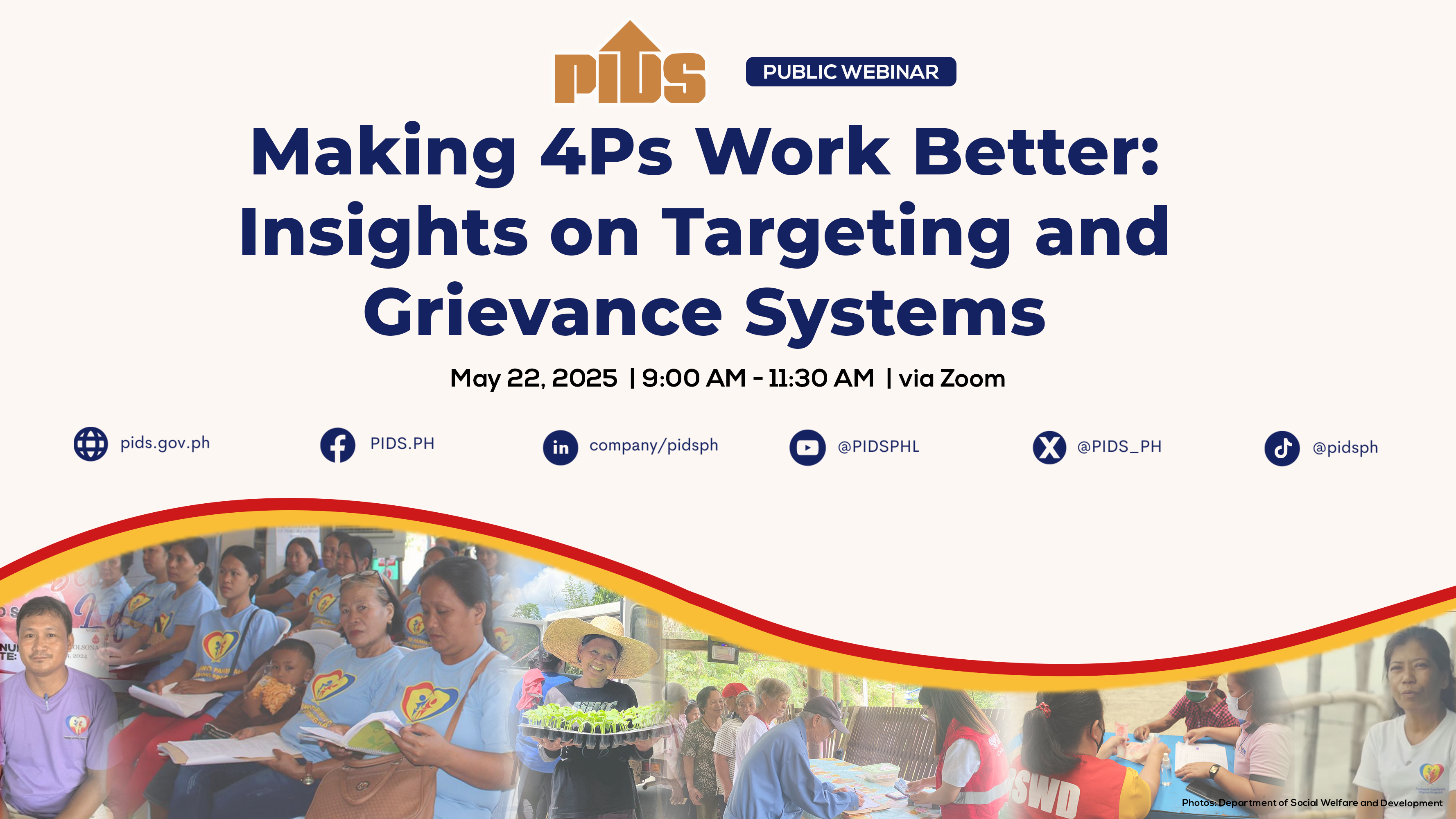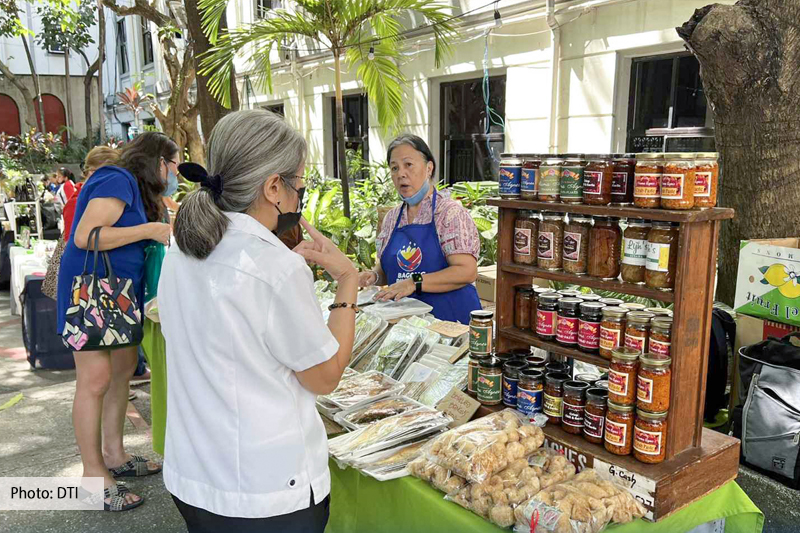
National and local policy augmentations, coupled with training, and incentive-provision, can empower women-led micro, small, and medium enterprises (WMSMEs) in Metro Manila to adopt circular economy principles. This shift can unlock significant economic opportunities and drive sustainable growth, while preserving environmental integrity.
These were highlighted at a recent webinar conducted by the Philippine Institute for Development Studies (PIDS) in support of the celebration of National Women’s Month. The webinar featured the study “Assessing the Adoption of Circular Economy among Women-Led MSMEs in Metro Manila: A Pilot Study” by Foreign Service Institute of the Philippines – Center for International Relations and Strategic Studies former Chief Research Officer Jovito Jose P. Katigbak and Senior Foreign Affairs Research Specialist Jemimah Joanne C. Villaruel.
Despite the increasing prominence of circular economy or CE as a strategy for achieving sustainable development, the study reveals a concerning knowledge gap among WMSMEs in Metro Manila. These enterprises lack awareness of CE principles and their potential integration into their operations.
“The majority of our respondents had never heard of circular economy principles before,” shared Katigbak during his presentation. Out of their 58 respondents, over 65.5 percent were completely unaware of government-led programs, while another 32.8 percent had only limited knowledge about specific projects. This lack of awareness is surprising, considering the existence of several local-level programs.
Katigbak further highlighted a low CE adoption rate among the surveyed WMSMEs. Only a few businesses are engaged in CE practices such as post-sales services, material recycling, and eco-friendly design. According to Katigbak, “the primary challenge to CE adoption is the limited knowledge, awareness, and financial resources”. “The absence of government support and policies for WMSMEs further complicates this matter,” he added.
To address these challenges, Katigbak urged collaborative action from the Department of Environment and Natural Resources (DENR) and the Department of Trade and Industry (DTI). He called for the development of targeted education campaigns and specialized CE courses specifically designed for WMSMEs. Furthermore, he emphasized the need for government-led incentive programs and support schemes to address the financial barriers hindering CE adoption. “It is crucial to empower women entrepreneurs by providing them with the necessary tools and knowledge to embrace CE principles,” he argued.
Katigbak also recommended facilitating collaboration and streamlining existing regulations. He also advocated for the establishment of a national framework on CE to harmonize existing initiatives and programs.
Building on the emphasis on collaboration, Director Emma C. Asusano of the Bureau of Small and Medium Enterprise Development (BSMED) under DTI echoed Katigbak’s statement. She remarked that “the Philippines is well-positioned for the transition to a circular economy”, citing existing frameworks such as the Philippine Development Plan, MSME Development Plan, and National Climate Change Action Plan, along with various initiatives. These efforts, she emphasized, collectively advocate for a “whole-of-society approach” toward a low-carbon future.
Director Asusano further highlighted the crucial role of local government units (LGUs) in the successful implementation of national policies. “Let us not forget that we have the local government units (LGUs), and they play a critical role in translating national laws into actionable plans for small businesses,” she stated during the webinar’s open forum. She argued that effective implementation hinges on LGUs guiding these enterprises to comply with CE principles. She underscored the importance of synergy between national and local levels, highlighting its potential to drive economic growth through a successful CE adoption.
Katigbak emphasized the need for inclusive policies that address the diverse challenges faced by women entrepreneurs in his presentation. “It is not enough to give women a seat at the table; you have to provide them a platform to speak”, he asserted. Recognizing this, he urged policymakers to actively listen to the unique needs of women.
Watch the webinar here: https://pids.gov.ph/details/resource/videos/unveiling-women-s-roles-in-circular-economy-adoption-and-tourism-growth. ###


